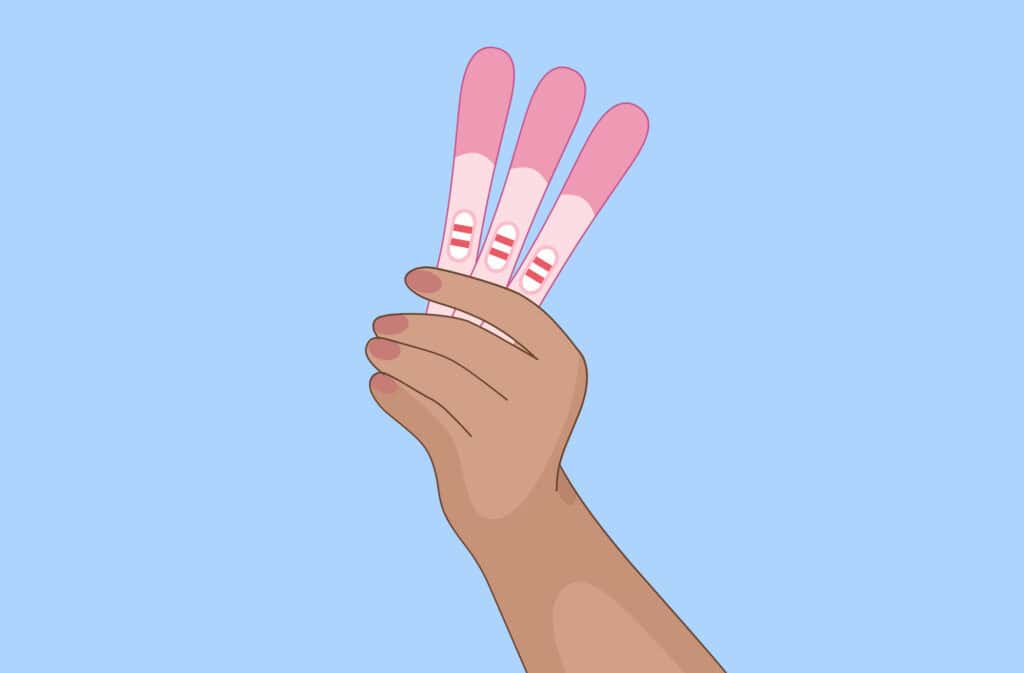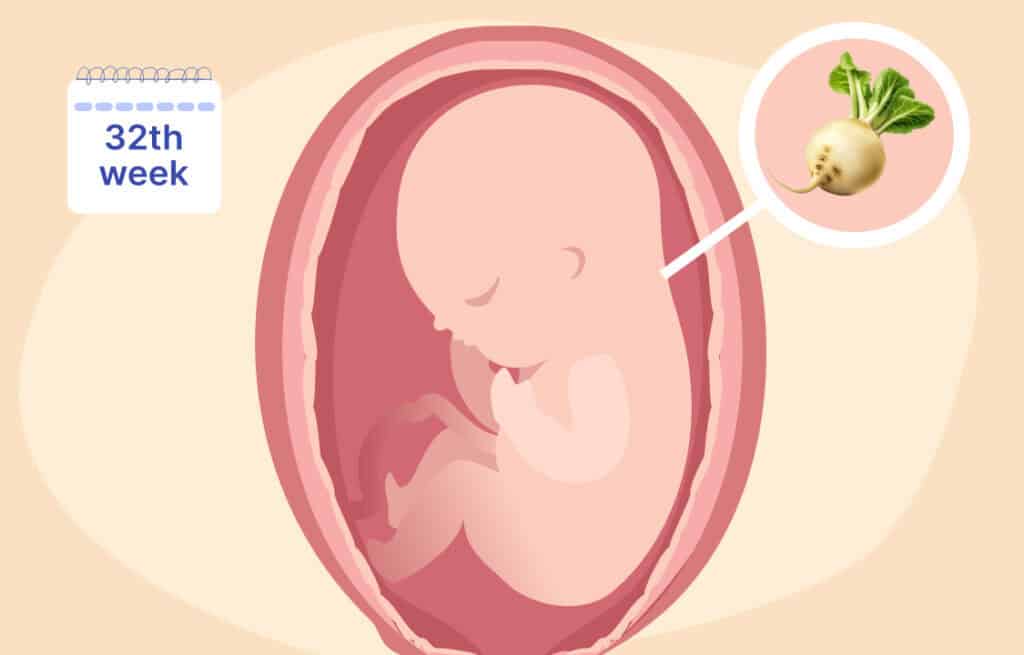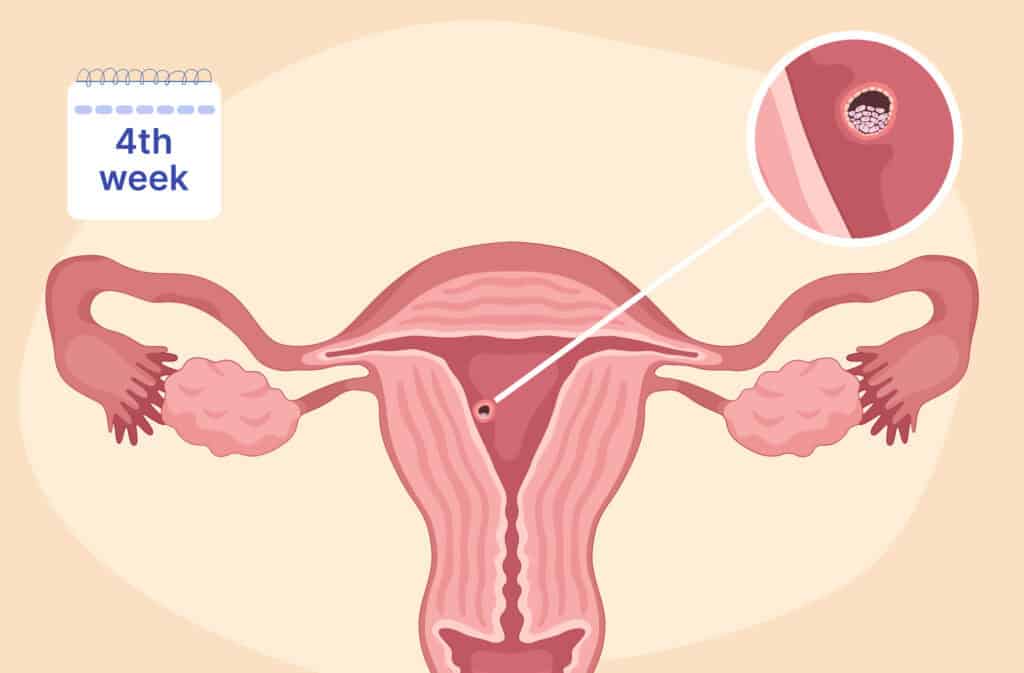Femia > Health Library > Getting Pregnant > Trying to conceive > How to get pregnant fast: Tips for conceiving naturally and quickly
How to get pregnant fast: Tips for conceiving naturally and quickly

- Updated Feb 10, 2025
- Published
CRAFTED BY HUMAN
Crafted by human At Femia, we provide accurate and up-to-date information at every stage of your journey, from trying to conceive, pregnancy and postnatal support. All content is created by a real person based on in-depth research and own professional experience. Femia ensures that you will receive expert advice, strict accuracy and a personalized approach from our authors/medical experts. Learn more about our editorial policy.
FACT CHECKED
Fact checked At Femia Health, we maintain the highest standards of editorial excellence in delivering content focused on helping you conceive, guiding you through pregnancy, and supporting you postpartum. Explore our content review principles to learn how we ensure the accuracy and quality of our health and lifestyle tips for every stage of your journey.
To get pregnant quickly, it’s important to have intercourse 1-2 days before ovulation, as the egg survives only up to 24 hours after ovulation. However, sperm can survive up to 5 days in the female reproductive tract, so having regular intercourse during the fertile window—typically between days 10-16 of a 28-day cycle—greatly increases your chances of conception. Ovulation usually occurs about 14 days before the start of your period, so tracking this fertile window can help optimize your chances of getting pregnant.
In addition, having a healthy diet—one rich in folate, omega-3 fatty acids, iron, zinc, whole grains, fruits, and vegetables—and maintaining your ideal weight is necessary for healthy and fast conception.
How to get pregnant fast is a question we all start to think about once the decision to have a baby has been made.
However, it is important to note that getting pregnant depends on multiple factors: your lifestyle, diet, exercise, stress levels, your and your partner’s age, reproductive health, sexual life, and overall wellness all play a role. In addition to these factors, there are some proven methods to get pregnant fast and improve the chances of conceiving naturally. Let’s discuss them in detail.
Femia offers the most accurate tool for determining ovulation and fertile days
Understanding your menstrual cycle
The average menstrual cycle is approximately 28 days long (also possible 21-35 days). During the cycle, an egg matures in the ovaries, preparing for fertilization with sperm for a possible pregnancy.
The phase of the menstrual cycle when the body releases a prepared egg from your ovary is known as ovulation. It typically occurs 10–16 days before the start of your period. During this phase, the chances of getting pregnant are the highest. This is known as your fertile window.
However, if the sperm doesn’t meet an egg within 24 hours after ovulation, the uterine lining (prepared for implantation) and the egg are shed as menstrual blood. Then, the cycle repeats again.
👉Find out more: What are the chances of getting pregnant after stopping birth control?
How to identify ovulation
- To identify your ovulation day, you can use an ovulation predictor kit, which is an at-home test that detects the peak level of luteinizing hormone (LH). This hormone surge occurs just before ovulation, helping you pinpoint your fertile window and increasing your chances of timing intercourse for pregnancy. This method can be very helpful in understanding when ovulation is approaching, giving you a better chance to conceive.
- You can also check your basal body temperature (BBT) in the morning to find out whether you’re ovulating. Your BBT is your body temperature when you are fully at rest. However, it slightly increases after ovulation and remains elevated until your period. You can track it through a BBT thermometer, which is readily available at most pharmacies. However, this method requires consistent, regular tracking over time to ensure accuracy and properly identify your ovulation pattern.
- Another way to spot ovulation is through your discharge. As ovulation approaches, your cervical mucus and vaginal discharge becomes stretchy, wet, and slippery and may look like raw egg white. After ovulation, cervical mucus typically returns to a dry and thick consistency. However, the quality of cervical mucus can serve as an additional indicator of fertility, though it may vary depending on your overall health and hormonal balance.
- Using apps like the Femia tracking app can help you keep track of symptoms like those discussed above, so you can learn your body’s cycle and plan the best time to try and conceive.
However, if you have not been tracking your ovulation or have an irregular cycle, an easy way to make sure you meet your ovulation day is to start having intercourse regularly 10–16 days before your period date.
Timing intercourse: When to have sex to get pregnant fast
If you’re still thinking about how to get pregnant quickly, the most important thing is to have intercourse at the right time. A man’s sperm can last in a woman’s body for up to five days, and an egg remains viable for up to 24 hours after ovulation.
Firstly, you should start tracking your ovulation day. It commonly happens on day 14 of a 28-day menstrual cycle. When day 14 is near, you can begin having sexual intercourse every 1–2 days. Remember not to miss intercourse before, on, and after the ovulation day to maximize the chances of sperm meeting the egg.
| Factors | Length/Timings |
|---|---|
| Menstrual cycle | 21 to 35 days long |
| Ovulation day | 14th day of each cycle |
| Periods | Every 28th day |
| Egg viability or survival | 12 to 24 hours after ovulation |
| Sperm survival | Up to 5 days |
What to do after sex to get pregnant fast
Now, what to do after sex to get pregnant fast? The truth is that sperm are pretty fast swimmers, and once they get in your vagina, they reach the uterus easily within 15 minutes. So, there is not much you should do after sex that will guarantee success and make you pregnant fast.
However, to remain on the safe side, it is better to avoid washing your vagina for a couple of minutes after intercourse and to tuck a thick pillow under your hips to prevent immediate leakage of the sperm. Additionally, vaginal douching is not recommended, as it can disrupt the natural balance of vaginal flora and may even reduce your chances of conception.
In addition, try avoiding over-the-counter vaginal lubricants while having sex, as they have been shown to adversely affect sperm motility. You can use fertility-friendly hydroxyethylcellulose-based lubricants, as they don’t reduce sperm motility and are commonly the same in viscosity and consistency as your natural vaginal mucus.
Lifestyle tips for faster conception
Apart from timely intercourse, it is necessary to maintain a healthy lifestyle to achieve faster and healthier conception. This is because a healthy ovulation depends on your overall wellness and daily habits.
The crucial lifestyle tips for faster conception include:
- Maintaining a healthy diet. Opt for fertility-friendly foods, like whole grains, omega-3 fatty acids, berries, fruits, and green vegetables. Avoid foods that may hinder fertility, like trans fats, processed items, and high-sugar foods.
- Maintaining a healthy weight. Being under- or overweight may affect your ovulation and menstrual cycles. A common way to check if your weight is healthy is to calculate your BMI (body mass index). A BMI between 18.5 to 24.9 is considered healthy. The formula for BMI is your weight in pounds divided by squared inches (in2), and the answer is multiplied by 703.
- Avoiding excessively hard exercises, which may lower your progesterone levels and affect ovulation. However, engaging in regular moderate exercises, like walking, jogging, running, and swimming, can boost fertility by helping you maintain a healthy weight, balance your hormones, and reduce stress.
- Managing your stress levels by engaging in yoga, mindfulness, stress therapy, taking breaks from work, and doing things you enjoy.
- Avoiding alcohol, tobacco, and smoke, and limiting your caffeine intake. Caffeine consumption should be limited to 200 mg per day, which is roughly equivalent to 1-2 cups of coffee, to support a healthy reproductive environment.
- Getting adequate and undisturbed sleep at night to optimize fertility and support hormonal balance.
- Reducing your exposure to chemicals, plastics, and environmental toxins, as they may affect fertility. Specifically, you should avoid phthalates, bisphenol-A (BPA), and other harmful chemicals, as they can disrupt the endocrine system and have toxic effects on the body, potentially impacting your ability to conceive and carry a pregnancy.
Nutrition and supplements to boost fertility
Nutrition plays a major role in your ability to conceive naturally. A balanced diet stimulates blood circulation and hormonal levels, plus improving egg quality and your reproductive potential.
Folic acid, a type of vitamin B, is needed for cell growth and metabolism—it is required during early pregnancy. It is found naturally in many foods, like leafy green vegetables, beans, and citrus fruits, like oranges.
While trying to get pregnant, maintain a diet rich in:
- Folate. Folate or folic acid helps in cell division, production of red blood cells, and DNA synthesis, helping in conception. It is present in dark leafy greens and fruits like oranges, bananas, strawberries, melons, brussels sprouts, peas, beans, nuts, and avocados.
- You can also start taking a prenatal vitamin with folic acid before trying to conceive to increase the chances of a healthy conception. According to the CDC, it is recommended to take 400-800 mcg of folic acid daily for 1-3 months before planning pregnancy. However, before beginning any supplement, consult your gynecologist for individualized guidance.
- Iron. Foods like spinach, lentils, seeds, egg, kidney beans, red meat, liver and organ meat, pumpkin seeds, and legumes are rich in iron. Iron is needed to nourish the growing fetus and placenta and increase the maternal red cell mass.
- Zinc. Sources of zinc include oysters, soybeans, cashews, pumpkin, chia, sesame seeds, lamb meat, and lean beef. Zinc is a crucial nutrient for oocyte division, fertilization, and embryo development.
- Whole grains. Whole grains are essential for conception, as they are a complete source of folic acid, iron, and fiber. Foods rich in whole grains include oats, quinoa, brown rice, whole-wheat bread, and flax seeds.
- Lean proteins. Proteins are required for a baby’s growth throughout pregnancy, from conception to birth. Poultry, lean meat, cottage cheese, lentils, peanut butter, soy, tofu, milk, greek yogurt, eggs, and seafood are excellent sources of lean proteins.
👉Find out more: Ovulation cramps vs implantation cramps: How to spot the key differences in pain, bleeding, and timing
Methods to get pregnant fast naturally
There are some alternative methods to get pregnant fast, like acupuncture and herbal supplements.
Acupuncture
Acupuncture may improve the chances of pregnancy by reducing stress and increasing blood flow to the ovaries and uterus, which stimulates the release of a healthy egg. However, the evidence supporting the effectiveness of acupuncture for conception is limited, and it should not be used as the primary method for fertility treatment. While acupuncture is generally considered safe and may be effective for some people, it is important to consult with a healthcare provider before relying on this method.
Herbal supplements
Herbs, such as Vitex, Ashwagandha, Maca, black cohosh, and red clover are available to help support hormonal well-being in females.
However, it is crucial to consult a doctor first before starting any alternative therapy or herbal supplements.
When to seek medical advice
You should consult a healthcare provider if pregnancy hasn’t occurred when:
- You are younger than 35 years and have had unprotected sex for more than one year.
- You are older than 35 years and have had unprotected sex for over six months.
- You are facing menstrual irregularities and symptoms like excessive period pain, acne, weight gain, and excessive hair growth.
- You have been diagnosed with a reproductive disorder, like PCOS, endometriosis, cervical cancer, or retroverted uterus and are facing difficulty with conception.
Myths about getting pregnant fast
Let’s debunk the common myths on how can you get pregnant fast:
Myth #1: Multiple positions or a particular sex position increases the chances of getting pregnant.
Fact: Multiple sex positions or a specific position doesn’t guarantee fast conception. The things that matter are timely intercourse around ovulation days and the sperm reaching the woman’s uterus, regardless of the position.
Myth #2: You will definitely get pregnant if you have sex during ovulation.
Fact: Having sex during ovulation increases the chances of pregnancy, but it’s not guaranteed that conception will occur. Even under ideal conditions, the chances of conception are around 25-30%. Other factors, such as whether healthy sperm survived and reached the uterus, along with the woman’s overall health and egg quality, can also affect conception.
Myth #3: Certain foods and supplements guarantee fast pregnancy.
Fact: While maintaining a balanced and healthy diet, using supplements, and avoiding certain foods are essential to promote conception, it doesn’t guarantee pregnancy.
Femia offers the most accurate tool for determining ovulation and fertile days
Questions from the Femia community
How soon after stopping birth control can I get pregnant?
It varies from person to person and the type of birth control used, but on average, people get pregnant within 1–3 months after stopping the birth control.
Can I use over-the-counter fertility aids?
Yes, you can use ovulation kits to track your fertile window and fertility-friendly lubricants that help improve sperm motility. Having intercourse during your ovulation days is most important to get pregnant fast.
What if my periods are irregular?
Having irregular periods once or twice may be normal, as factors like stress, medications, excessive exercise, or using contraceptives can cause changes in your cycle. However, if you constantly have missed or irregular periods, it is best to consult a doctor, as it can make ovulation difficult.
The bottom line
Getting pregnant depends on multiple factors. While having intercourse during the fertile window is most important for getting pregnant, it’s also crucial to pay attention to your and your partner’s health, lifestyle, and diet.
The key to getting pregnant faster is tracking your cycle and being able to predict your fertile window, timing sex at least 2–3 days before ovulation and on the ovulation day. Additionally, make sure to opt for a healthy lifestyle and diet, manage stress, and quit alcohol and smoking to increase the odds of pregnancy.
If you don’t get pregnant within a reasonable period despite trying, consult a healthcare provider for a personalized checkup.
References
- Steiner, Anne Z., et al. “Effect of Vaginal Lubricants on Natural Fertility.” Obstetrics and Gynecology, vol. 120, no. 1, June 2012, pp. 44–51. https://doi.org/10.1097/aog.0b013e31825b87ae.
- Mayo Clinic, www.mayoclinic.org/healthy-lifestyle/getting-pregnant/in-depth/female-fertility/art-20045887.
- “Sperm: How Long Do They Live After Ejaculation?” Mayo Clinic, www.mayoclinic.org/healthy-lifestyle/getting-pregnant/expert-answers/pregnancy/faq-20058504#:~:text=The%20life%20span%20of%20sperm,decades%20when%20semen%20is%20frozen.
- Calculate Your BMI – Standard BMI Calculator. www.nhlbi.nih.gov/health/educational/lose_wt/BMI/bmicalc.htm.
- National Academies Press (US). “Iron Nutrition During Pregnancy.” Nutrition During Pregnancy – NCBI Bookshelf, 1990, www.ncbi.nlm.nih.gov/books/NBK235217.

At 32 weeks pregnant, your baby is growing and nearing full-term readiness. Explore symptoms, labor prep, and preemie survival rates.

Learn how to put a pillow under your hips to get pregnant with our detailed guide, complete with images. Discover effective techniques to enhance your chances of conception.

Learn about week 4 pregnancy symptoms, baby size, and the changes happening in your body as you progress in early pregnancy.

